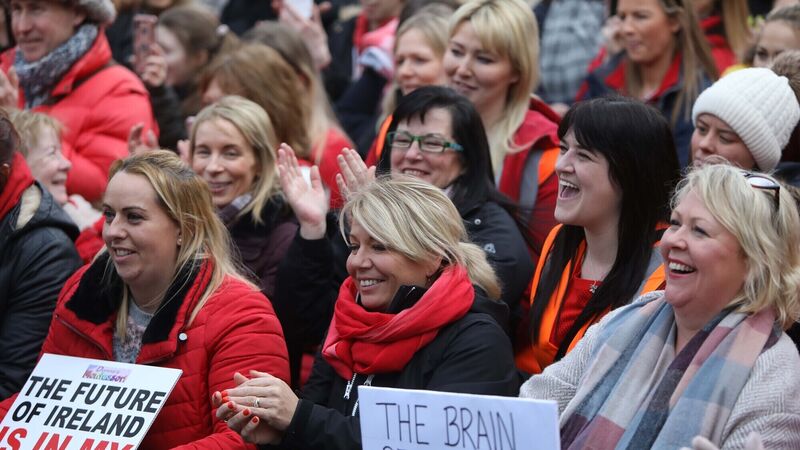Sinéad Matson: The seismic shift of Core Funding could right many wrongs in childcare sector

The Core Funding model promises to deliver the pay and recognition that 30,000 childcare workers — mostly women, who founded and still largely run the sector — marched for in February 2020. Picture: Garrett White/Collins
Childcare (or early childhood education and care to use its proper name) has traditionally been a cottage industry, founded by women in their houses or community halls to provide playgroups and care to local children.
As early as 1969, the Irish Preschool Playgroups Association were calling for quality provision and regulation.













